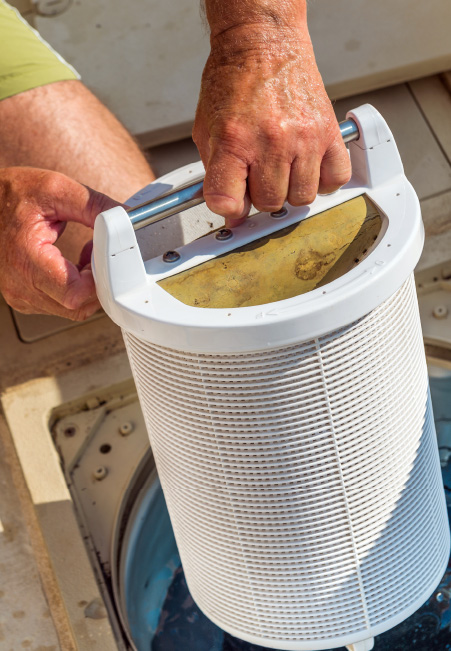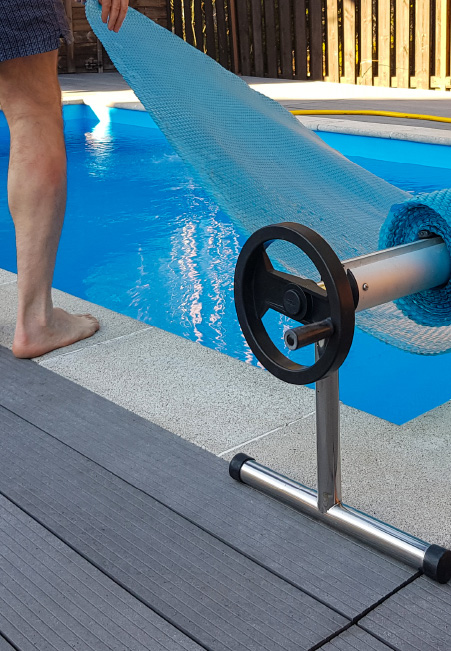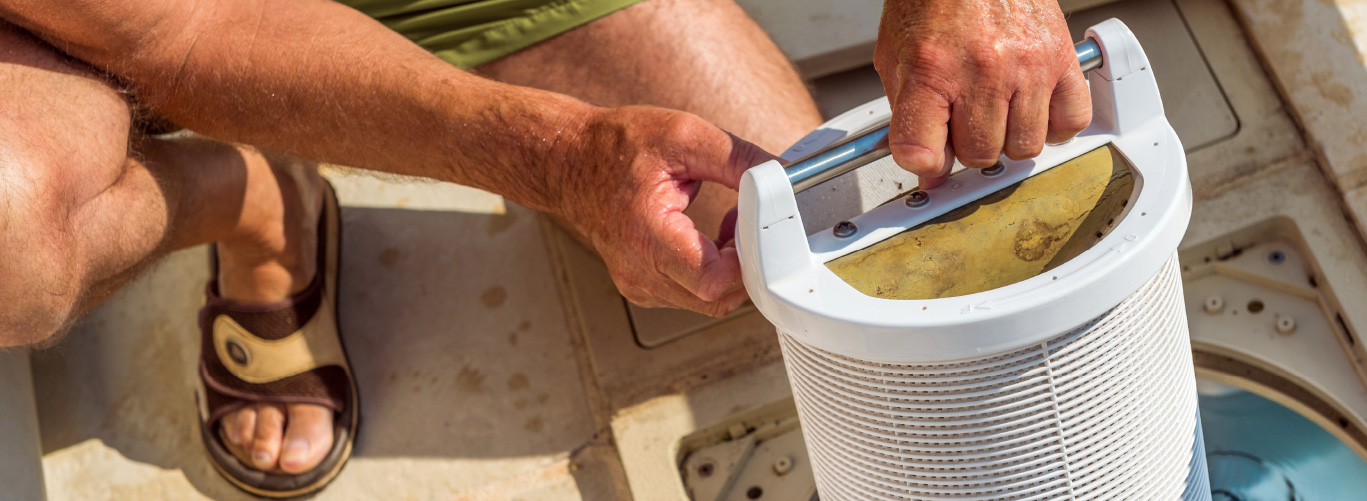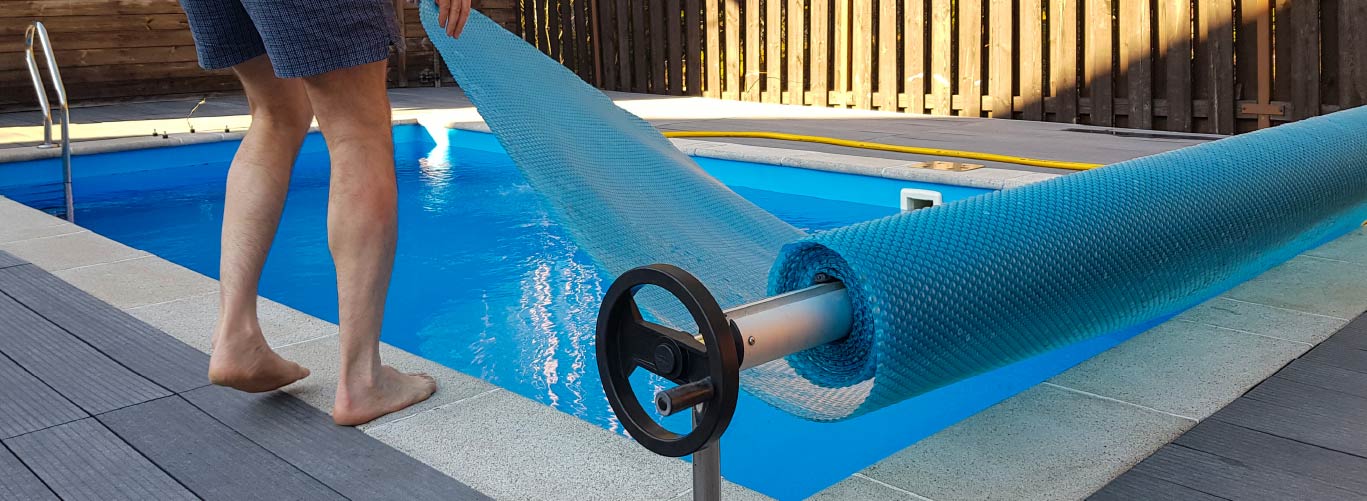Responsible Water Conservation For Pools
Owning a pool is a dream come true for many homeowners. It offers an oasis of relaxation and fun right in your backyard. However, with great enjoyment comes great responsibility. One critical aspect often overlooked by pool owners is water conservation. In a world increasingly conscious of environmental sustainability, responsible water management is not just a choice but a necessity. This blog post aims to inform pool owners about the significance of water conservation, provide practical tips, and inspire actionable steps towards more sustainable pool management.

Understanding Water Conservation for Pools
The Importance of Water Conservation
Water is a precious resource. As climate change exacerbates drought conditions globally, the need for water conservation becomes increasingly urgent. For homeowners, especially those with large water features like pools, it is essential to understand how their usage impacts both their water bills and the environment.
Common Water Loss Factors in Pools
Pools can lose water through various pathways. Evaporation is one of the most significant factors, particularly in hot climates. Splash-out and leaks are also common culprits. Understanding these factors is the first step in mitigating water loss and ensuring responsible pool management.
Smart Pool Upgrades for Water Conservation
Innovative Pool Covers
One of the simplest yet most effective upgrades you can make to your pool is adding a cover. Pool covers dramatically reduce evaporation by up to 95%, which is especially beneficial in arid climates or during hot summer months. They also help retain heat, reducing the amount of energy needed to keep your pool warm. This means you’re not constantly reheating water, which can be both costly and energy-intensive. Modern covers are designed to be easy to use; many can be automated, allowing you to cover and uncover your pool with the push of a button. This convenience ensures that you are more likely to use the cover regularly, maximising its benefits.
High-Efficiency Pumps
Replacing your old pool pump with a high-efficiency model can lead to significant water and energy savings. These pumps are designed to operate more efficiently, reducing the amount of water lost through the filtration system. Unlike traditional pumps, high-efficiency models often have variable speed settings, allowing you to adjust the performance based on your pool’s specific needs. This not only saves water but also reduces electricity usage, offering a dual benefit for eco-conscious pool owners. Additionally, many high-efficiency pumps are quieter and more durable, providing a better overall user experience.
Automated Pool Systems
Automation is a game-changer in modern pool management, offering a level of control and convenience that was unimaginable just a few years ago. Automated systems can monitor water levels, detect leaks, and even optimise chemical usage to keep your pool in perfect condition. By integrating smart technology, such as sensors and mobile apps, pool owners can receive real-time alerts and make adjustments remotely. This ensures that your pool’s water usage is as efficient as possible, helping to reduce waste and save on maintenance costs. Plus, automation can extend to pool cleaning, lighting, and heating systems, providing a comprehensive solution for hassle-free pool ownership.

Best Practices for Responsible Pool Water Management
Regular Maintenance
Proper maintenance is crucial for minimising water waste and ensuring the longevity of your pool. Regularly check for leaks in the pool structure, plumbing, and equipment. Clean filters on a set schedule to keep them running efficiently, and ensure that all equipment, including pumps, heaters, and chlorinators, is functioning correctly. A well-maintained pool not only conserves water but also provides a safer and more enjoyable swimming experience by preventing the buildup of harmful bacteria and debris.
Efficient Cleaning Techniques
Traditional pool cleaning methods can waste a lot of water through excessive backwashing and manual cleaning. Instead, consider using robotic pool cleaners that recirculate and filter the water they use, significantly reducing water waste. These advanced devices are designed to clean the pool floor, walls, and waterline, making maintenance easier and more effective. Additionally, avoid backwashing your pool filter too frequently, as this can lead to unnecessary water loss. Only perform backwashing when the filter’s pressure gauge indicates a need, ensuring optimal performance while conserving water.
Monitoring Water Levels
Keeping an eye on your pool’s water level helps prevent overfilling and underfilling, which can both lead to water waste and potential damage to pool equipment. Use a simple mark on the pool wall or an automated water leveller to maintain the optimal level. This practice ensures that you only use the water you need, reducing waste. Additionally, consider installing pool covers to reduce evaporation and the need for frequent refilling. Monitoring water levels consistently will help you detect leaks early and maintain the right balance for efficient pool operation.

The Impact of Responsible Water Conservation
Environmental Benefits
Implementing water conservation measures in your pool can have a substantial positive impact on the environment. Reducing water waste helps conserve local water resources, which is especially crucial in drought-prone areas. It also means less energy is used for heating and filtering, reducing your carbon footprint.
Cost Savings
While the initial investment in water-saving technologies might seem high, the long-term cost savings are significant. Reducing water and energy usage lowers utility bills, and efficient pool management can extend the lifespan of your equipment, saving you money on repairs and replacements.
Community Influence
By adopting responsible water conservation practices, you set a positive example for your community. Encouraging neighbours and friends to follow suit can lead to a collective effort that magnifies the benefits of water conservation. Together, we can make a substantial difference.
Conclusion
In a world where every drop counts, responsible water conservation in pool management is not just a good idea—it’s imperative. By understanding the importance of water conservation, upgrading to smart pool technologies, and implementing best practices for water management, pool owners can enjoy their backyard oasis guilt-free. The benefits extend beyond personal savings; they contribute to a more sustainable and environmentally responsible community.
Responsible Water Conservation For Pools
Owning a pool is a dream come true for many homeowners. It offers an oasis of relaxation and fun right in your backyard. However, with great enjoyment comes great responsibility. One critical aspect often overlooked by pool owners is water conservation. In a world increasingly conscious of environmental sustainability, responsible water management is not just a choice but a necessity. This blog post aims to inform pool owners about the significance of water conservation, provide practical tips, and inspire actionable steps towards more sustainable pool management.

Understanding Water Conservation for Pools
The Importance of Water Conservation
Water is a precious resource. As climate change exacerbates drought conditions globally, the need for water conservation becomes increasingly urgent. For homeowners, especially those with large water features like pools, it is essential to understand how their usage impacts both their water bills and the environment.
Common Water Loss Factors in Pools
Pools can lose water through various pathways. Evaporation is one of the most significant factors, particularly in hot climates. Splash-out and leaks are also common culprits. Understanding these factors is the first step in mitigating water loss and ensuring responsible pool management.
Smart Pool Upgrades for Water Conservation
Innovative Pool Covers
One of the simplest yet most effective upgrades you can make to your pool is adding a cover. Pool covers dramatically reduce evaporation by up to 95%, which is especially beneficial in arid climates or during hot summer months. They also help retain heat, reducing the amount of energy needed to keep your pool warm. This means you’re not constantly reheating water, which can be both costly and energy-intensive. Modern covers are designed to be easy to use; many can be automated, allowing you to cover and uncover your pool with the push of a button. This convenience ensures that you are more likely to use the cover regularly, maximising its benefits.
High-Efficiency Pumps
Replacing your old pool pump with a high-efficiency model can lead to significant water and energy savings. These pumps are designed to operate more efficiently, reducing the amount of water lost through the filtration system. Unlike traditional pumps, high-efficiency models often have variable speed settings, allowing you to adjust the performance based on your pool’s specific needs. This not only saves water but also reduces electricity usage, offering a dual benefit for eco-conscious pool owners. Additionally, many high-efficiency pumps are quieter and more durable, providing a better overall user experience.
Automated Pool Systems
Automation is a game-changer in modern pool management, offering a level of control and convenience that was unimaginable just a few years ago. Automated systems can monitor water levels, detect leaks, and even optimise chemical usage to keep your pool in perfect condition. By integrating smart technology, such as sensors and mobile apps, pool owners can receive real-time alerts and make adjustments remotely. This ensures that your pool’s water usage is as efficient as possible, helping to reduce waste and save on maintenance costs. Plus, automation can extend to pool cleaning, lighting, and heating systems, providing a comprehensive solution for hassle-free pool ownership.

Best Practices for Responsible Pool Water Management
Regular Maintenance
Proper maintenance is crucial for minimising water waste and ensuring the longevity of your pool. Regularly check for leaks in the pool structure, plumbing, and equipment. Clean filters on a set schedule to keep them running efficiently, and ensure that all equipment, including pumps, heaters, and chlorinators, is functioning correctly. A well-maintained pool not only conserves water but also provides a safer and more enjoyable swimming experience by preventing the buildup of harmful bacteria and debris.
Efficient Cleaning Techniques
Traditional pool cleaning methods can waste a lot of water through excessive backwashing and manual cleaning. Instead, consider using robotic pool cleaners that recirculate and filter the water they use, significantly reducing water waste. These advanced devices are designed to clean the pool floor, walls, and waterline, making maintenance easier and more effective. Additionally, avoid backwashing your pool filter too frequently, as this can lead to unnecessary water loss. Only perform backwashing when the filter’s pressure gauge indicates a need, ensuring optimal performance while conserving water.
Monitoring Water Levels
Keeping an eye on your pool’s water level helps prevent overfilling and underfilling, which can both lead to water waste and potential damage to pool equipment. Use a simple mark on the pool wall or an automated water leveller to maintain the optimal level. This practice ensures that you only use the water you need, reducing waste. Additionally, consider installing pool covers to reduce evaporation and the need for frequent refilling. Monitoring water levels consistently will help you detect leaks early and maintain the right balance for efficient pool operation.

The Impact of Responsible Water Conservation
Environmental Benefits
Implementing water conservation measures in your pool can have a substantial positive impact on the environment. Reducing water waste helps conserve local water resources, which is especially crucial in drought-prone areas. It also means less energy is used for heating and filtering, reducing your carbon footprint.
Cost Savings
While the initial investment in water-saving technologies might seem high, the long-term cost savings are significant. Reducing water and energy usage lowers utility bills, and efficient pool management can extend the lifespan of your equipment, saving you money on repairs and replacements.
Community Influence
By adopting responsible water conservation practices, you set a positive example for your community. Encouraging neighbours and friends to follow suit can lead to a collective effort that magnifies the benefits of water conservation. Together, we can make a substantial difference.
Conclusion
In a world where every drop counts, responsible water conservation in pool management is not just a good idea—it’s imperative. By understanding the importance of water conservation, upgrading to smart pool technologies, and implementing best practices for water management, pool owners can enjoy their backyard oasis guilt-free. The benefits extend beyond personal savings; they contribute to a more sustainable and environmentally responsible community.


